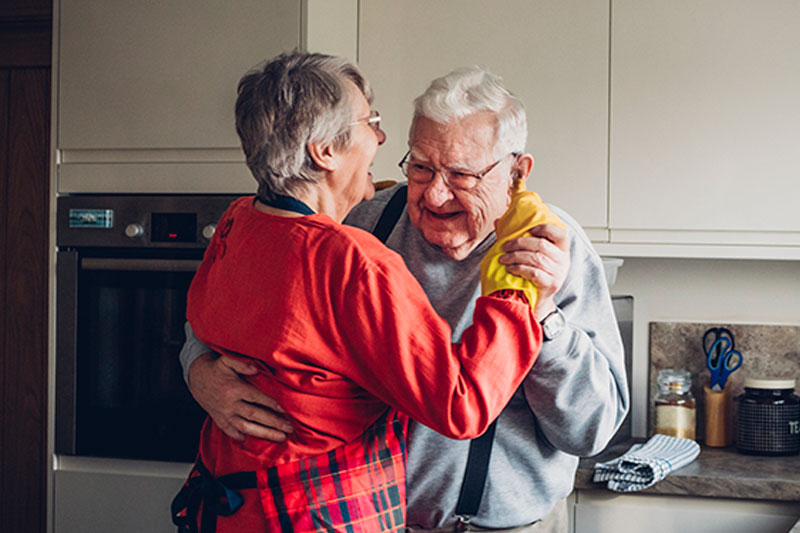
Help loved ones stay active with these exercises for dementia.
When a senior has Alzheimer’s disease and all of the issues that it involves, family care providers need a toolbox full of helpful strategies. Of all the creative techniques caregivers can use to help make life as comfortable, safe, and meaningful as it can possibly be, there is one very effective strategy that could be neglected: exercises for dementia.
We know that fitness is important for all of us, both physically and mentally, and that doesn’t change with a dementia diagnosis. Exercise often helps:
- Improve sleep
- Improve flexibility, balance, circulation and muscle strength
- Relieve pain
- Lower the risk of falling
- Improve mood and attitude
- And much more
Best of all, it is drug-free, so there are no unwanted side effects to be concerned about!
To motivate and encourage an older adult with dementia to take part in physical fitness, plan on working out together. In this way you can easily model the movements and assist the individual when necessary – bearing in mind that performing the exercises on their own as much as possible is an excellent way to build self-esteem and confidence.
Unsure where to begin? Try these exercises for dementia in accordance with the senior’s ability level.
Exercises for Early and Mid-Stage Dementia
These more advanced exercises work very well for a person with lesser cognitive impairment:
- Sign up (together!) for an exercise class at the local YMCA, gym, or senior center. If the older adult enjoys being in the pool or may benefit from a lower impact workout, try water aerobics.
- Dance! You can dance together at home, sign up for a dance class, or bring the older adult to social events at your local senior center that include dancing. Bonus: music is remarkably helpful in stirring memories for people with dementia.
- Work side by side in the garden – raking, digging, planting, pulling weeds, picking vegetables and flowers. Getting out in the fresh air is a great mood booster as well, and the work yields a satisfying sense of purpose.
- Clean up! Household chores like dusting, vacuuming, sweeping, and even doing laundry are excellent ways to work out, and accomplishing these jobs together allows for conversations, reminiscing, and a sense of achievement when the tasks are done.
- Go for a walk together – at the park, in a shopping mall, or just around the block. Stick to the same route if the senior prefers, or change it up from day to day if more variety is appreciated.
Exercises for Late-Stage Dementia
Alterations will have to be made as the disease progresses, but there are still lots of opportunities to incorporate physical activity into the older adult’s day, such as:
- Sit to stand: From a seated position, with as much support and assistance as needed, the individual will rise up to a standing position, pause for a couple of seconds, and return to a seated position. Repeat several times.
- Chair stretches: This video offers several different stretches which will help strengthen and build muscles throughout the body.
- Bed stretches: For a senior who is bed-bound, moving and bending the arms and legs, whether independently or with assistance, can help ease stiff muscles.
Reach out to Hearts at Home In-Home Care, a provider of elder care in Overland Park and the surrounding areas, for help with implementing an ideal (doctor-approved) exercise program for a loved one with dementia, along with the compassionate companionship that makes exercise more enjoyable! Reach us today at 913-440-4209. For a full list of all of the communities where our top-rated home care services are offered, please visit our Service Area page.
